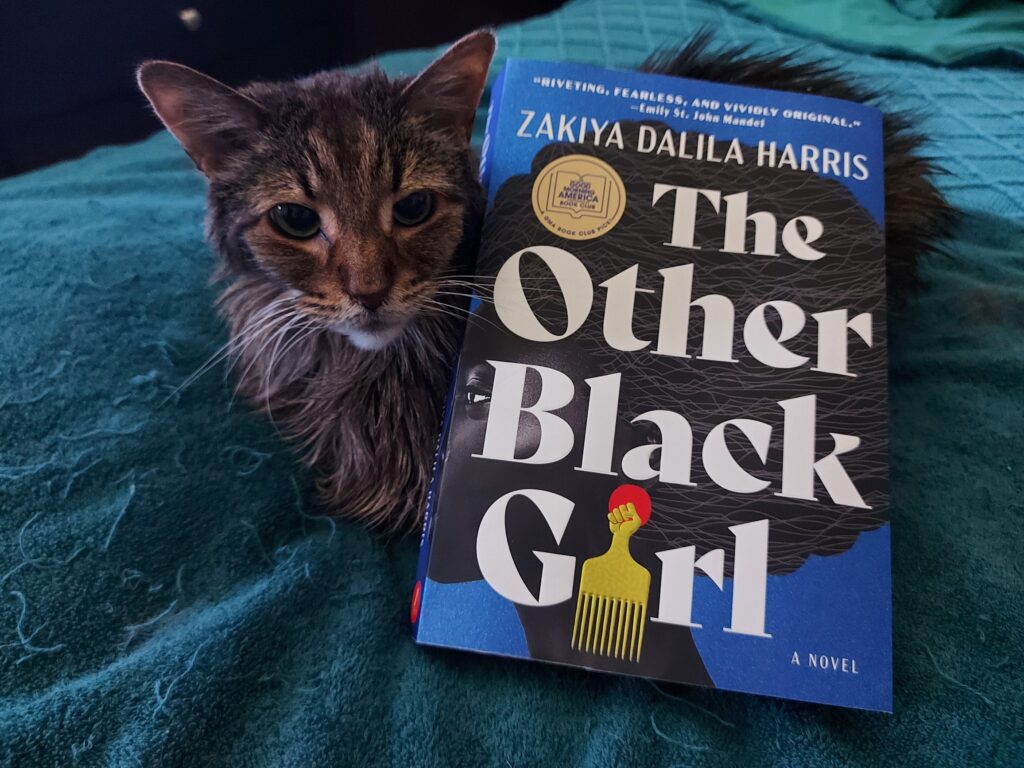The Other Black Girl by Zakiya Dalila Harris

The Other Black Girl is currently being majorly hyped as the book to read this summer. Although I did enjoy reading this novel, for the most part, and it kept me up later than I should have been up on a work night because I did not want to put it down, I saw the ending coming a mile away, so I am on the fence if it is worth all the hype.
The premise of The Other Black Girl is very intriguing, especially when you learn that the author has based some of it on her own experience in the publishing industry: it is about an editorial assistant named Nella Rogers, who is the only Black girl that works at the prestigious Wagner Books (a fictional publishing company) in New York, until the other Black girl shows up, Hazel-May McCall. At first it seems like Nella may have finally found an ally in Hazel at the very white Wagner, but then things begin to happen and suddenly Hazel has become the office darling while everyone has turned against Nella. Then Nella finds a note on her desk that says, “LEAVE WAGNER. NOW.”
The Other Black Girl is a multi-layer thriller not only about Nella’s experience at Wagner, but also a Black female editor who worked at Wagner before she disappeared in 1983 and a Black girl named Shani who ends up in New York after being fired from a magazine that she worked for in Boston. These three women’s stories all link together in a way that I at first thought was absolutely bonkers, but it made more sense once I got over the initial WTF??
Most importantly, though, The Other Black Girl is a commentary on the racism and microaggressions that Black people face when they work in a largely white workplace or industry; how they are often the token hire to make a workplace look more diverse, how they struggle to fit in and how they are overlooked. It is very much a critique of the publishing industry, which continues to be dominated by white people, and which advances white authors seven-figures for their books while writers of colour get paid peanuts in comparison for telling similar stories (although, Harris apparently received a seven-figure advance for The Other Black Girl, so hopefully things are changing?). How can it be left to white editors and publishers to determine whether a book really represents a marginalized group of people? (Here’s looking at you, American Dirt)
I think women in general will be able to relate to Nella’s experience as she finds herself marginalized further in her workplace and wonders why Hazel turns on the only other Black assistant in the office. I wanted to reach into the book and bitch slap Hazel for undermining Nella. It is hard enough being a woman working for a male boss and knowing that you are being paid less than your male counterparts; why do women make it worse by pitting themselves against each other in the workplace?
Nella is a character you want to root for, even if she does make some stupid decisions. She earnestly tries to make Wagner a more diverse place to work and she tries to live more authentically as a Black person, but struggles on both counts. She does not feel like she is Black enough because she grew up in Connecticut in a predominantly white town. Her friends were mostly white, and she has always dated white guys. Her mother started chemically relaxing Nella’s hair when she was just nine years old. It was not until she moved to New York that Nella decided to embrace her Blackness and cut off all her hair to let her hair grow in naturally. Hair plays an especially important role in this story, and Nella does not know how to deal with her natural hair, just like she does not know how to deal with Hazel.
As I already mentioned, I found the ending of The Other Black Girl to be predictable, and it also kind of feels…hopeless. Is it meant to be hopeless or is it meant to inspire action? I really cannot explain my feelings about the ending without spoiling everything that happens in the novel, so I need someone to discuss it with lol. In any event, I recommend reading The Other Black Girl, just temper your expectations of all the hype.